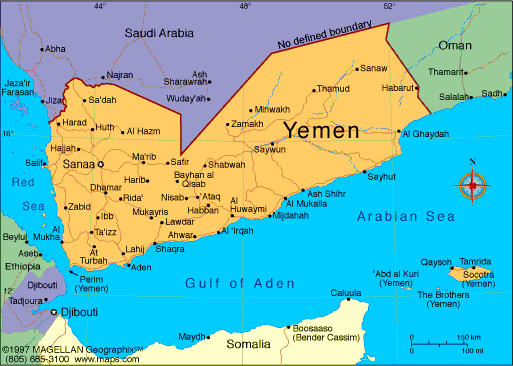
A report from the World Bank published earlier last week came to concur the International Monetary Fund (IMF) findings that Yemen, among other countries in the region, will require external “financing worth up to $50 billion in 2015”, should it be expected to avoid a massive economic meltdown.
In the light of ongoing political instability and much insecurity, political and security observers have been keen to prioritize economic reforms as a mean to support institutional reforms and prevent unrest. Since poverty has been proven a catalyst of sort in Islamic indoctrination, with terror militants playing on people’s frustration and desperation to sustain its movement, economists have advanced that stronger economic institutions and thus a better repartition of resources will directly cut insecurity at the root by starving dissident groups from popular support. A happy people are less likely to give in to political extremism than a starving people.
IMF Managing Director Christine Lagarde noted to that regard, “Arab Countries in Transition have maintained economic stability while navigating through difficult economic and socio-political terrain. However, economic growth is still too low and the jobs created are far too few to meet the aspirations of the people that took to the streets more than three years ago, in part to ensure better access to economic opportunity. The priority now is to launch ambitious reforms to raise growth and make a dent in the countries’ high rates of unemployment, especially among youth.”
Yemen which is still tittering on the brink of financial insolvency is said to have only three months’ worth of foreign currencies reserve for 2015, as per reported by World Bank. The report warns that oil-rich countries, such as Yemen will have to reign in on its fiscal spending as it reduces the space “capital expenditure and investment in infrastructure,” thus diminishing economic growth.
In its report the IMF carries similar warnings, noting, “Unless strong economic and financial reforms are implemented, recovery will be insufficient to reduce the region’s high rates of unemployment in a meaningful way, particularly among the women and youth.”
“The agenda for jobs and growth in the Arab Countries in Transition has to be tackled in a complex, evolving socio-political environment. Countries should carefully prioritize and sequence their reforms in the context of a changing political economy that requires broad-based consensus building and buy-in from stakeholders that were previously excluded,” Masood Ahmed, Director of the IMF’s Middle East and Central Asia Department, said on Saturday at a press conference in Washington.